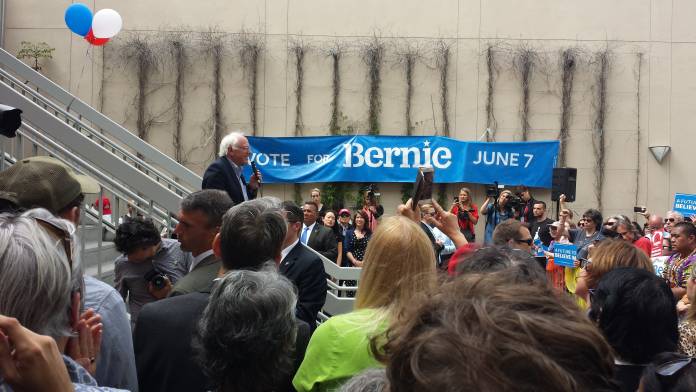Bernie Sanders visited the Mission District today on the eve of the California primary, and called for his supporters to remake the Democratic Party from the bottom up and take it away from the big donors. But he stopped short of endorsing the slate of candidates for the local Democratic Party Central Committee that is trying to do just that.
Many of the members of the Reform Slate were on hand when Sanders came to the City College Mission campus for a relatively small rally that preceded a much larger event at Crissy Field. This was mostly a GOTV event, designed to encourage people to walk precincts and get last-minute voters to the polls.
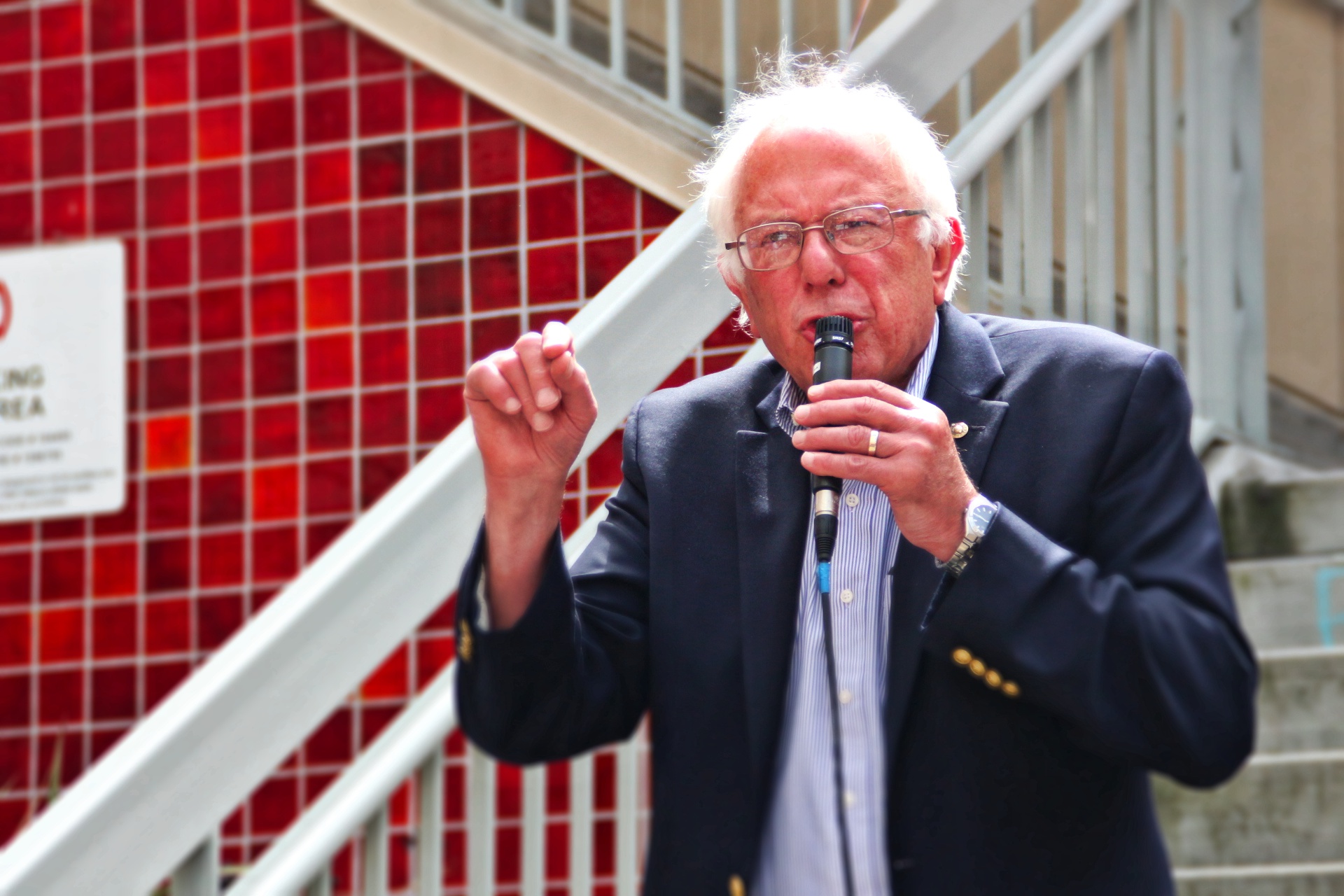
If turnout tomorrow is heavy, he said, “we win.” If it’s really strong, “we win big.” But if turnout is relatively modest, Hillary Clinton wins.
Sanders made his usual (inspiring) stump speech, said that it was “too late for establishment politics and economics,” noted that there’s been a huge surge in voter registration in this state, and urged supporters to work for “the largest turnout in Democratic Party history.”
The crowd cheered back as Sanders spoke about radical ideas, “I want everybody to understand this if you go out and knock on the door and somebody says these are crazy ideas, they are radical ideas, extremist ideas tell them ‘no.’ Every idea, here (or virtually everyone) has the support of the majority of the people of this country,” he said “You know want to hear a radical extremist idea? it’s giving tax breaks to billionaires when we have massive income and wealth inequality. A radical and extremist idea are insulting Mexicans, latinos, Muslims and African Americans.” Then he asked, “how to we open the Democratic Party to young people and working people?”
One way, of course, is to start with Democratic Party organization at the local level. It’s no secret that the San Francisco party is run by the real-estate industry and Big Tech, which is spending more than a million dollars to keep control.
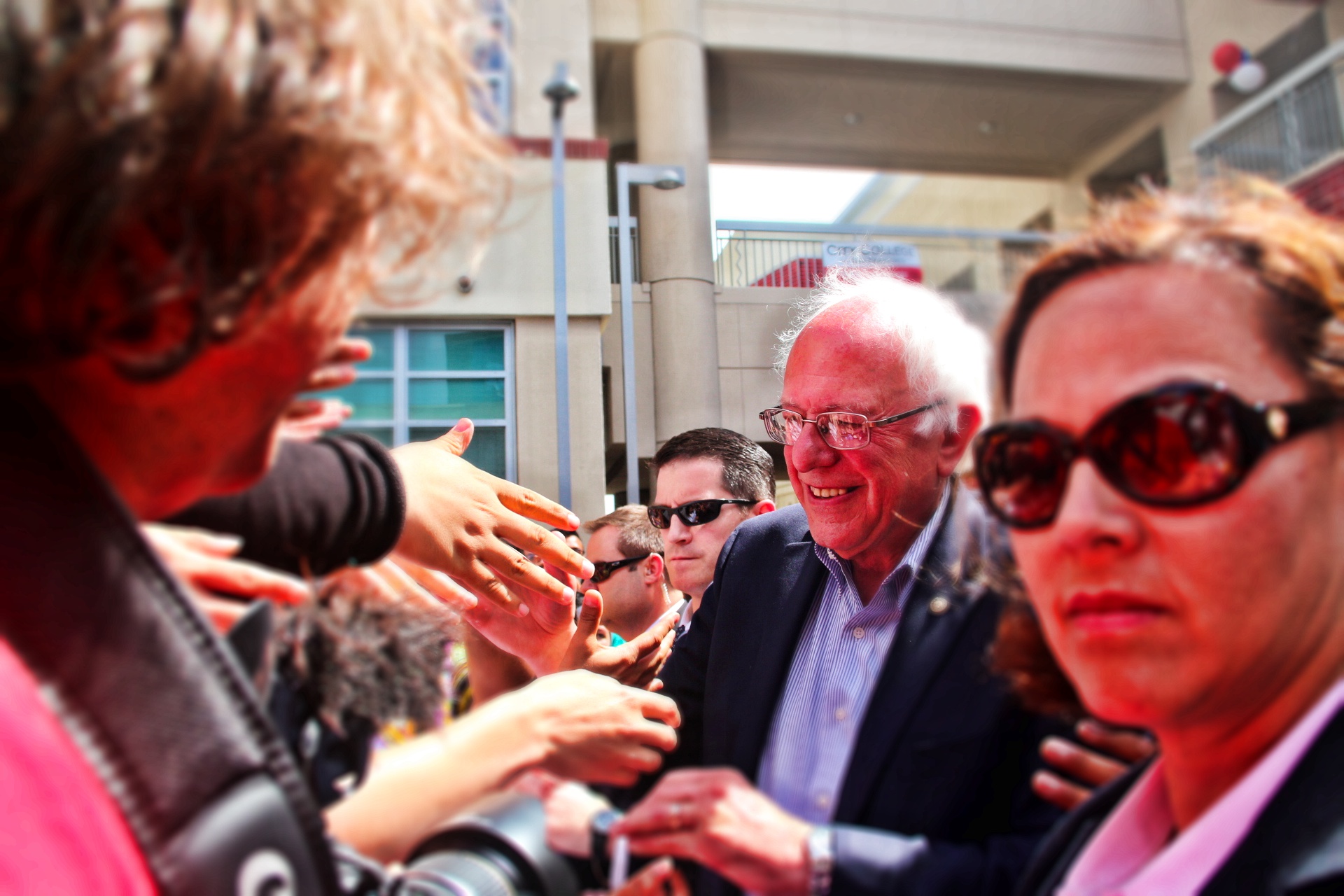
And many of the reporters on hand were waiting for Sanders, who has endorsed Jane Kim for state Senate, to say something about the people joining her on a slate to take back the DCCC.
But he never went that far, leaving some of us to wonder:
When this is all over, if Sanders is not the nominee of the party, will he be able to use his historic campaign and his popularity to build a new base, starting at the grassroots level?
Sanders talked about how, 50 years from now, people will wonder how the type of wealth concentration we see today was ever possible, how a nation like the US could fail to provide healthcare and education to its people. But that’s not going happen unless over the next 50 years, the economic left builds a national presence.
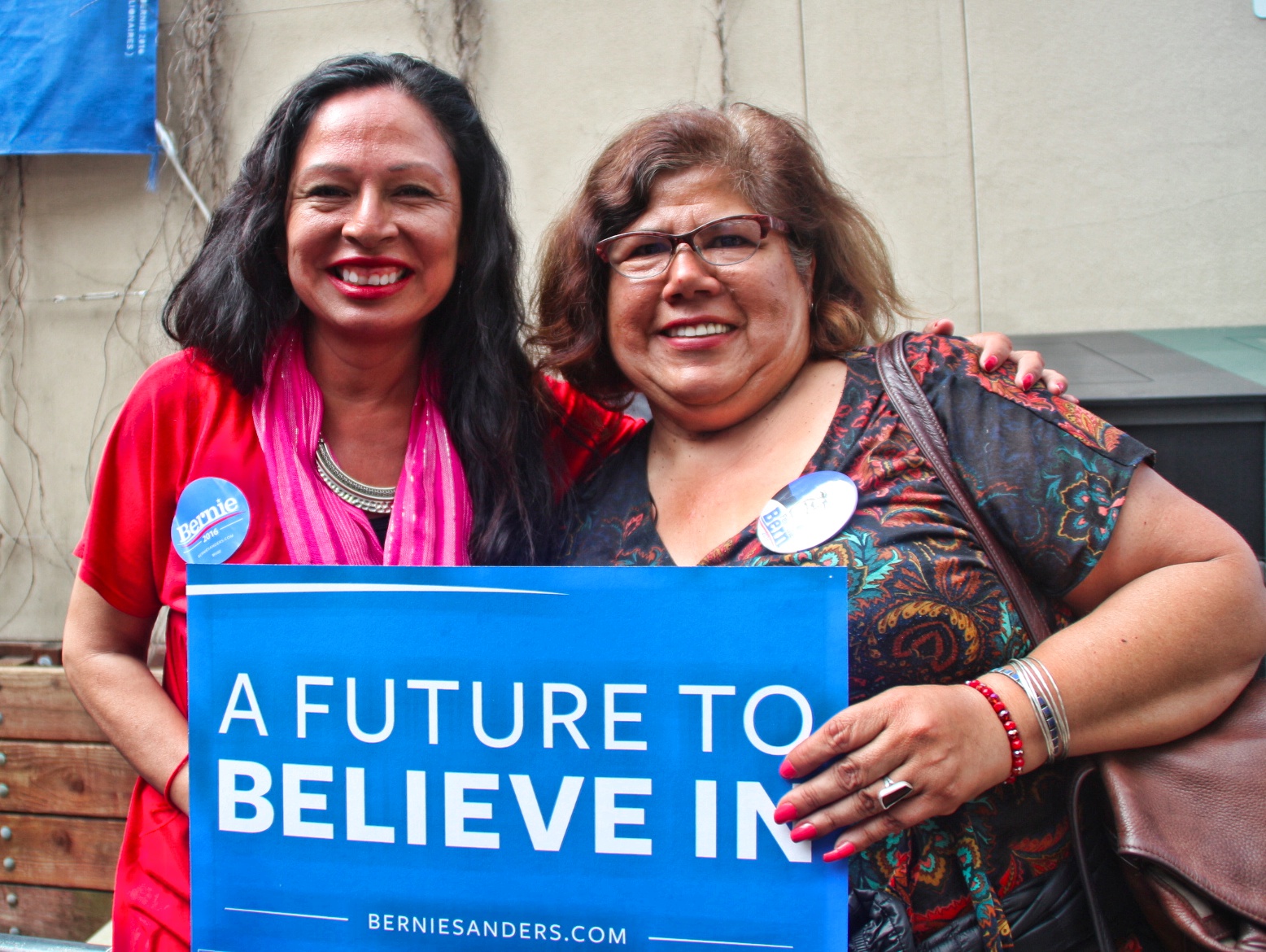
The Republicans in the 1980s used the popularity of Ronald Reagan to elect local school boards and city councils and then state legislatures; the GOP still controls a lot of state-level government, which has allowed the right wing to gerrymander congressional districts and keep in power in Congress a party that is widely discredited on the national level.
Sanders will soon be at a crossroads. If he wins California big, and if the Democratic bigwigs who will make the final decision – the “superdelegates” — decide that he has a better chance than Clinton of beating Trump, and he somehow winds up as the party’s standard-bearer, he will be in the position to remake the party from top to bottom.
If, on the other hand, Clinton locks up the nomination, Sanders will of course have to endorse and support her. But will he stop there, go back to the Senate, and finish his distinguished career representing the people of Vermont?
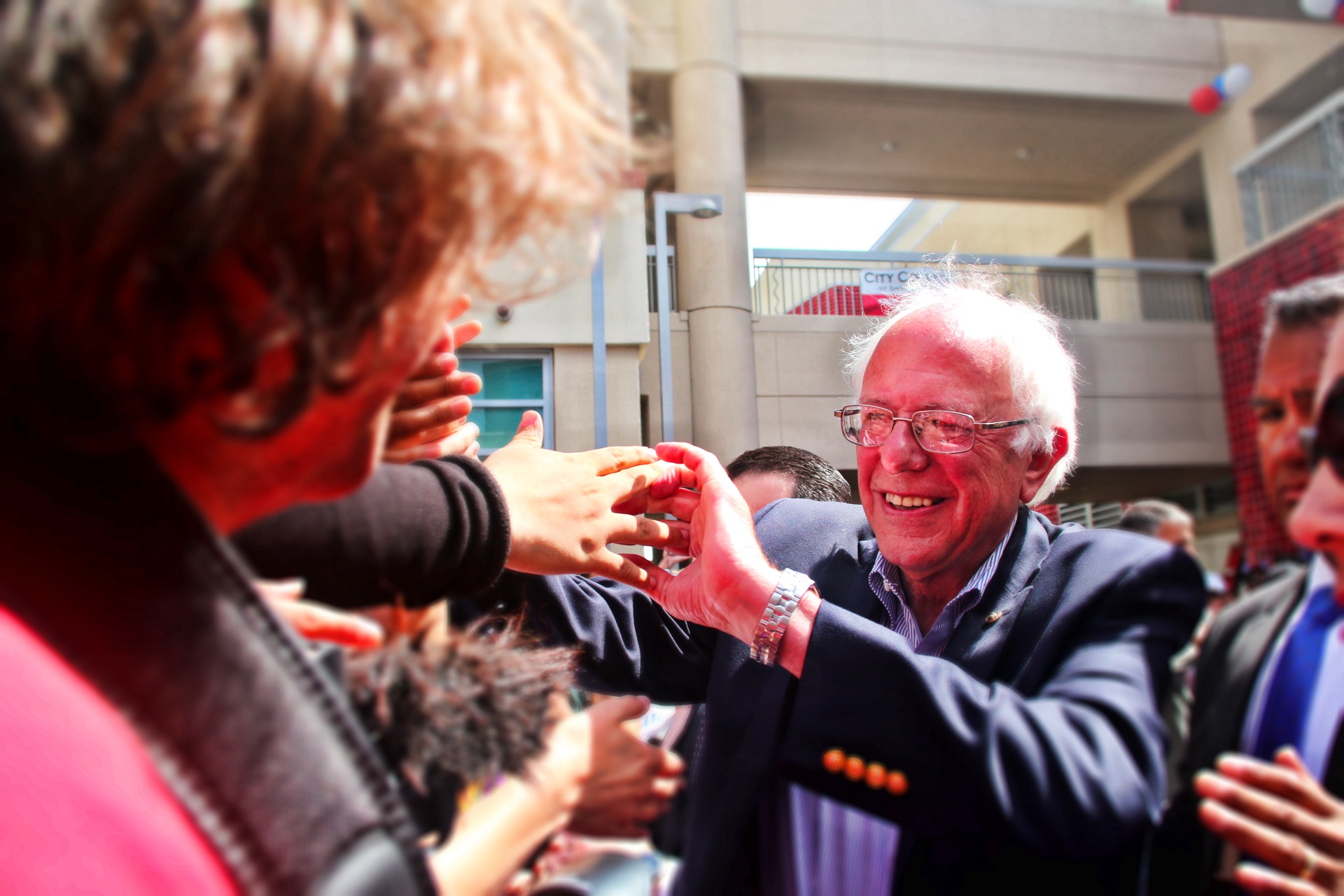
Or will he try to build a national organization of progressives that can (slowly) take over the party from the bottom up?
If he’s going to do that, he has to start by recognizing that the future is happening now, in local races like the one for control of the DCCC in San Francisco.
And in the same way that he helped Jane Kim in her state Senate race, he will have to make his presence known and use his formidable reputation and fundraising to help his allies win elections in cities and towns all over the country.
We saw an example of how effective that can be with his support for Kim. We saw the limits when he didn’t endorse her allies for DCCC.
After the event Sanders greeted supporters on Mission street before moving across town to Chrissy Field where he greeted thousands of reporters. As the crowd were waiting for Sanders to arrive, the Associated Press reported that Clinton had reached the number of super delegates needed to become the Democratic Party’s Presidential nominee, it turned out AP had just predicted Clinton would get enough tomorrow and the crowd continued to enjoy the evening. Another reminder, however, of how important it is for the registered Democrats to vote tomorrow.

